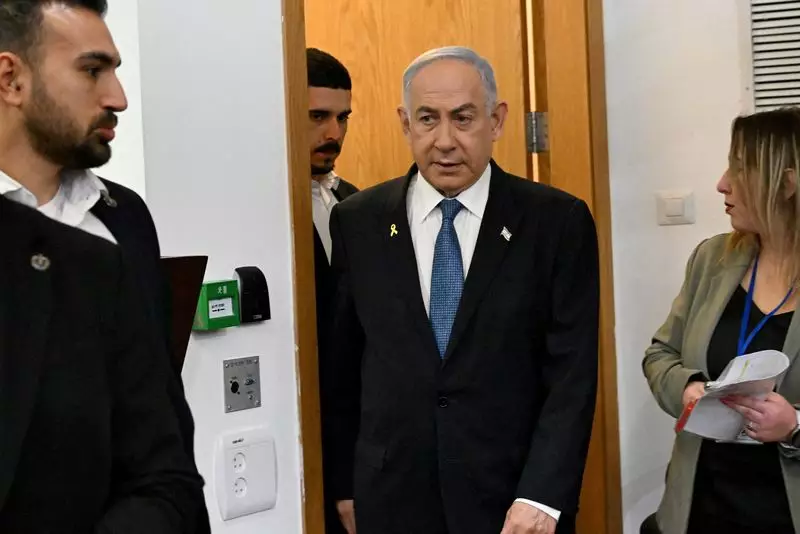In a dramatic display of political resolve, Israeli Prime Minister Benjamin Netanyahu has risen from his hospital bed following prostate surgery to exert influence over his fractious coalition partners. This bold move comes amid a crucial moment for his government as it faces challenges to pass the 2025 budget. With key ally factions, notably represented by hardline Interior Minister Itamar Ben Gvir and ultra-Orthodox parties, threatening to vote against the proposed austerity measures, Netanyahu’s approach underscores the precarious state of the most right-wing coalition in Israel’s history.
The recent need for a wartime budget that calls for tax hikes and spending reductions illustrates the economic strains exacerbated by the ongoing conflict with Hamas. Netanyahu’s government, with a narrow majority of 64 out of 120 seats in the Knesset, finds itself at a tipping point. The coalition, which has been marked by divisions and conflicting interests, is increasingly challenged as its leaders engage in brinkmanship over future legislative support.
Managing the Internal Dissent
The intricacies of coalition dynamics have come to the forefront as Netanyahu summoned the strength to advocate for unity within his ranks. His message was clear: the stability of a right-wing government hangs in the balance, and he called upon all members, including the controversial Ben Gvir, to refrain from actions that could jeopardize their legislative agenda. Given that the budget is not only essential for raising state revenues but also for maintaining the coalition’s fragile balance, Netanyahu’s plea reflects a recognition of the heightened stakes involved.
As legislative discussions unfold, conflicting priorities among coalition members only complicate the path ahead. Ben Gvir’s demands for increased funding for police operations clash with the ultra-Orthodox parties’ discomfort surrounding potential military enlistment mandates for their communities. These divergent interests have the potential to unravel the carefully woven fabric of Netanyahu’s coalition.
The Economic Landscape and Implications Ahead
The context of this budgetary negotiation cannot be separated from the broader economic landscape in Israel, particularly following the attack by Hamas on October 7, 2023. The ongoing conflict has transformed the country’s economic prospects, leading to stagnation in growth, rising inflation, and a steep increase in living costs for ordinary Israelis. The public is increasingly restive, and dissatisfaction could threaten the coalition’s standing if the budget does not serve to stabilize the economy.
Failure to pass the budget by the March 31 deadline could expose the coalition to the risk of elections, an outcome that many coalition partners would prefer to avoid. As Netanyahu has attempted to broaden his support base by incorporating members from the opposition, such as Gideon Saar, who now serves as foreign minister, he endeavors to strengthen his position. However, the ensuing dynamics of coalition politics and crisis management indicate that the road ahead is fraught with challenges.
Netanyahu’s leadership is increasingly defined by the need for both robust governance and delicate negotiation within a divided parliament. As Israel grapples with external threats as well as internal discord, the upcoming budget for 2025 will serve as a critical test of not only economic policy but also the very survival of his coalition in power. The intertwining of leadership, coalition dynamics, and the economic situation will be significant in shaping Israel’s immediate future.

